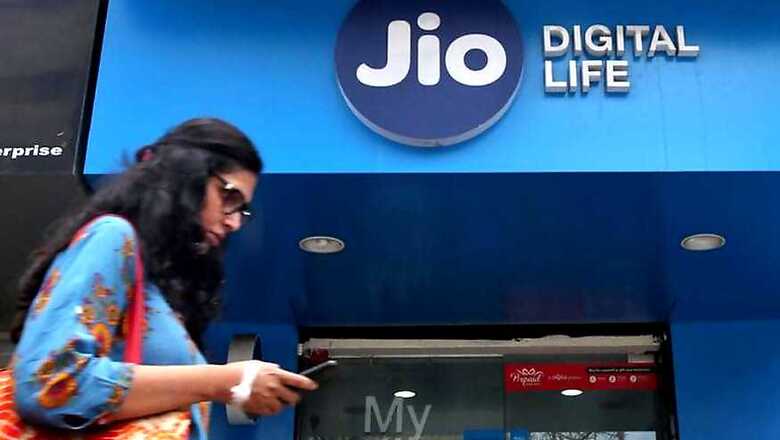
views
Reliance Jio took many by surprise when they announced that going forward, calls made to other wireless networks such as Bharti Airtel and Vodafone Idea would be chargeable, and cost 6p/min going forward. However, rather than the overall impact coming on to Reliance Jio, industry experts believe that it is the other operators who may use this opportunity to increase tariff as well, thereby equalising the overall impact in the short term.
Faisal Kawoosa, founder and chief analyst at techARC, told News18, “So far, what stopped the other operators from charging a higher sum to users for voice calls was Reliance Jio and its disruptive plans, but with Jio being forced to charge consumers, other operators may also end up charging consumers in a context different from IUC charges. The free era of Indian telecom may end with this move in the long run, and variable charges might come into place.”

Explaining why the move may not severely impact Jio and its market position, Kawoosa said, “The already existent cost (of IUC) is now to be borne by the consumers. This may not really urge people to join the same network, and the same could have been effectively leveraged by the competition without levying additional charges. However, looking at the financial condition of the rival operators, they too may start charging consumers in one way or another, hence neutralising the move.”
Anil Kaushal, retired member (technology) of the Telecom Commission and ex-officio secretary to Government of India in Department of Telecommunications (DoT), believes that while the average user may be impacted, the industry will remain largely agnostic. Speaking to News18, he said, “The impact will be more on people for the time being, than the industry as a whole. It is possible that other operators may also increase inter-operator charges by following Jio’s footsteps. As a result, the common man may be affected and pay more money. As for the industry, anyone can fluctuate the tariffs depending on competition at any point, so such a move is relatively natural. The industry is likely to not be significantly affected by this move for now.”
Kaushal further stated that it is too early to gauge the long term effects of IUC charges being levied and passed on to consumers, and it will all depend on the results of the consultation paper floated by the Telecom Regulatory Authority of India (TRAI). This will determine whether the charges remain, get reduced or completely abolished altogether. Kawoosa agrees, but remains skeptical about whether the charges would really get abolished by January 1, 2020.
Elucidating on why such tariffs may remain for longer than expectations, he said, “Right now, we may not really have the technology complementing that in India. Globally, IUC in many markets is zero, because all voice traffic is over IP. Here, IP traffic is still low, which means there will still be some resistance to this deadline of making IUC zero by January.”
In order to offer consumers a better value against the increased tariff, Reliance Jio is offering equivalent, complementary data against the IUC tariff top-ups that users will now be required to do. These recharges can be done in sums of Rs 10, 20, 50 and 100, which will offer 124, 249, 656 and 1,362 minutes of non-Jio operator calling respectively, and also provide 1GB, 2GB, 5GB and 10GB of additional data to users against these recharges, respectively.




















Comments
0 comment